[Stories of Origin] High skills, low value: Indifferent Governments on both ends of migration
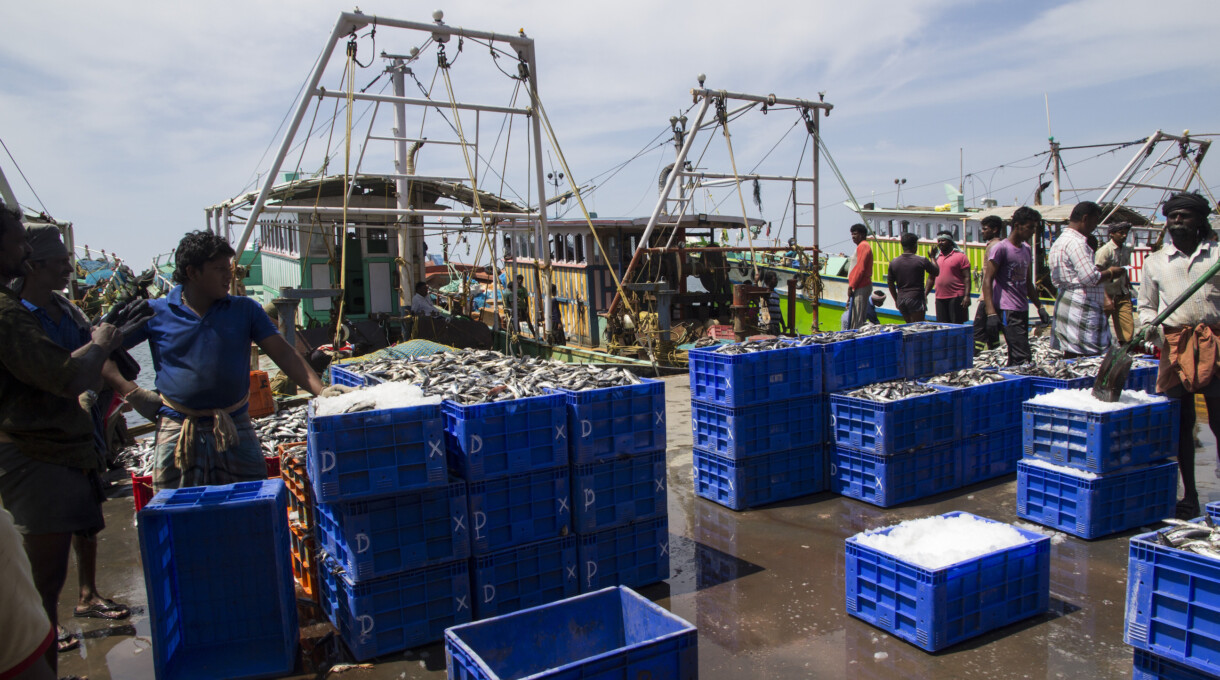
In the concluding part of the series on migrant fishermen, we look at the systemic failures in countries of origin and employment, that leaves them vulnerable to vagaries of more than just the sea.
A stone’s throw away from the only landing centre in Muttam (a private one at that) is a modest concrete building. In a bright, airy, sparsely-furnished room is a metal cupboard filled to the brim with folders. Each contains a plea to officials and history of the fishermen’s journey from Kanyakumari to incarceration in a Gulf state or Iran. Some of these files are of fishermen who are being held to ransom by their sponsors.
The letters written by South Asian Fishermen’s Federation are uniform in tone and structure. Sheets of passport-sized mugshots, with personal details and an explainer. Scenario 1: The fishermen are caught crossing borders and detained. The Indian embassies in both country of employment and detention are presented with details of the case and asked to help pay the fine and secure the fishermen’s release.
Scenario 2: The fishermen have been going to sea for months, and the sponsor does not pay them for their share of their catch. After about six mfonths and sometimes even a year, the fishermen refuse to go to sea, and demand to be returned to their home countries. The sponsor refuses to issue an exit permit. The embassy’s help is sought to secure the permit.
Every family in Muttam has a story, and the ones that don’t, answer every overseas call with dread. Or worse still, when they don’t hear from their men, they borrow other people’s stories to fill the gaps.
Yet, as soon as a boy turns 18 he heads to one of a handful of travel agents in Nagercoil, the closest town. As important as the kith or kin who would secure a job for them in the Gulf is the local travel agent, who will help them acquire a passport and process immigration papers.
Tsunami effect?
Sakuntala of the National Domestic Workers Federation, who helps us meet families in Muttam, says a lot of lives were lost during the Tsunami. “Garbage was being washed ashore. Quite a few of the fishermen were scared to go back. So there was skills training for shore-based jobs. But not enough opportunities in that either. So more migration. Fishing also reduced.”
Kadiapattinam is a village neighbouring Muttom, and hit hard post-Tsunami. “There are 1500 families, all of them with a family member in the Gulf. About 500 in Qatar and the rest in Saudi.”
Father Churchill on the other hand doesn’t feel the Tsunami affected migration as much. “It just pushed people to an alternative way of living. In last 20 years, every family has 2-3 migrants. Earlier in a village 2-3. They used to invest only in the sea. Tsunami changed that. They wanted to invest in land too. Earlier they either lived on church land or government plots.”
He lists a cocktail of reasons, most of which to do with the local government’s indifference, that escalates migration.
“As a fisherman here, your earnings are not cumulative. It’s meagre, and the family spends it for sustenance. More importantly, in Tamil Nadu we don’t have sufficient graft or landing centres. Even for the graft that the fishermen have, there isn’t sufficient instruments like harbours and fish landing centres.”
This is the sorry state of affairs despite fishing being the mainstay of the community. The Kanyakumari district accounts for a third of all fishermen in the state of Tamil Nadu. “All are active fishermen here. Neighbouring Kerala has many more fish landing centres, even though they don’t have as many fishermen.”
The caste-based politics of India extends quite deep into Tamil Nadu, and explicitly impacts fishermen.
“The state is politically governed. So the community (caste) that has political representation will have their needs met by the government. The last time any investment was made in the fishing industry was in 1962, when mechanised boats were introduced. That too because the fisheries minister was from the community.”
There are about 300,000 fishermen in Kanyakumari district alone. Of them 100,000 are active, and 50,000 have migrated – nearly 25,000 fishermen to the Gulf alone.
Furthermore, because of extensive trawling the fish source has depleted drastically.
Trawling remains a contentious issue between Sri Lanka and India, but neither have been able to quell the problem.
So much so, Sri Lanka desperate to keep a check on Indian fishermen is considering limited licences. A Sri Lankan weekly reports:
Fisheries Minister Mahinda Amaraweera said the Defence Secretary had mentioned the proposal. “It has been put forward as an idea and it is not necessarily a bad one,” he explained. “At present, 2,000 to 3,000 Indian trawlers fish in our waters. The aim is to reduce this to about 250 and to issue licences to them. But we must first speak to our people, especially our fisher associations. If they agree, we will implement it.”
“They’ve erased the source of fishing. It is banned by the state, but people still do so. Because no alternatives are given,” explains Father Churchill.
In Qatar as well, mechanised bottom trawlers were permitted. “When it caused trouble for the oil pipelines, they bought the graft and net and gave their citizens subsidies for other kinds of fishing,” he says, comparing it to the Indian government that has not given an alternative. “So they go ahead with available methods.”
A whole load of paperwork, but no contract
The week we visit Muttam is at the end of what the Tamils call ‘Modaku’. A two-month rest period for fish stock to replenish. Benjamin says this is the law of the sea, but the Gulf has introduced this only belatedly, after they felt the pinch of dwindling stock. Each coast has a different period allocated for this.
So there are a few fishermen home on leave in Muttam. And they speak of Mangalam travels as much as they do about the 'Kafeel' or 'Arabi'. In a bustling junction near the local administrative offices is a dingy four-storeyed building. On the second floor is Mangalam travels. A well-lit contrast to the drab exteriors.
Robin, a client servicing executive, spoke to us about the role of the agency in helping fishermen migrate.
“The visas are usually brought by the captain or the driver who works with the sponsor. For each country the process is different. And whatever costs the fishermen pays for. They first do their medical that costs about Rs2000. Almost 90% go to Saudi Arabia. Those headed to Qatar come with a readymade visa. Saudi and Kuwait visa has to be stamped pre-departure and is facilitated by registered agencies in Mumbai. We help with that. Then we book tickets. Bahrain and Oman, only medical has to be done pre-departure.”
For every component there is a fee, and the total could be as low as Rs 10,000 (US$149) covering tickets alone, or as high as Rs 50,000 (US$750) that covers all the paperwork. This does not include amounts paid to the ‘captain’ as a recruitment fee.
At no point in this process is a contract in play.
They work without minimum wages, end of service benefits, a recognised contract or any kind of financial support.
Shaja, whom we met in part 1 of the series, is well-versed in the ways of the Gulf. Her husband Ravikumar has worked in the Gulf for several years, first in Saudi and now in Dubai.
“They are encouraged by their kafeels to cross the seas, and the kafeel would bail them out. But they have to pay him back. My husband had to pay back Rs 100,000 (US$1490) to the kafeel when he was caught and released by Iran in 2013.”
One part of what the fishermen earn is theirs. “Usually the captain gets 2 shares, kafeel and rest get 1 share of catch. Sometimes the kafeel gets the majority share and rest shared by crew.”
First the UAE and now the rest of the Gulf states have set 5-day limit on the length of time the boat can be out at sea, to prevent overfishing. This reduces significantly the number of fishing days, and correspondingly, the number of earning days. And in those five days, they are encouraged to push their luck and violate boundaries.
“In the fishing line sponsors are completely dependent on fishermen. So they won’t sign a contract. They can’t afford to pay if there’s been no catch,” says Robin, matter of fact.
He says about 90% of their business is dependent on fishermen. They come with visas sent by people they trust. We help with processes. In a month 40-50 fishermen come to this agency alone, to get tickets and other paperwork done.
“A lot of people come back cheated.” And there is no contract that they can hold to account.
The shackles of kafala
The fishermen are neither covered by the e-migrate system of India, nor the labor laws of countries of employment. They work in an unregulated vacuum, subject to the vagaries of commercial interests, climate change and blinkered governance.
In the GCC, domestic workers are classified as those who work in private households as cooks, nannies, caretakers, gardeners, drivers. The fishermen, with their seaman’s visa, are excluded from the labor laws and fall under the purview of domestic workers immigration management.
“The fishing community in Kanyakumari are adventurous. These are the only deep sea fishermen who migrate, even globally. They can stay up to 50 days at sea. So these men are sought after as they are good fishermen and adventurous. The Arab sponsors seek these fishermen out,” says Father Churchill.
These sponsors, however, are not fishermen. They invest in the sea solely dependent on migrants to run the risky business. They find a captain, who then builds his crew. The captain is the one who communicates with sponsor on needs. He then puts out a call in his village, and the fish workers then pays the captain anywhere between Rs 100,000 to 300,000, he says.
If things sour between sponsor and fishermen, then they are trapped in the kafala system, with little or no access to legal recourse.
“Fishermen turn 18 and they get a passport and can’t wait to fly abroad. There is no pre-departure turning as the Indian government doesn’t care. Neither does the Gulf. It is bonded labor there, even if they recognise the value of these fishermen.”
The fishermen survive on ‘advance’ and ‘running accounts’ in local grocery stores, as their share is not paid immediately. Even that share is disputed.
“They will know how much they catch, but they don’t know what it yields. It’s what the kafeel says it is.”
He recounts the case of 63 fishermen on 15 boats in Jubail, Saudi Arabia. “All owned by the Amiri Al Khalidhi company. They were not given their share of fishing for seven months. Last two months they have been asking to to return. Sponsor has refused, as he would be investigated if 63 of his sponsored employees leave all at once. And he would be unable to get more visas. Yet, he won’t pay the share.”
Once the fishermen land in the Gulf, their passports are confiscated, and all that they have on them is a seaman’s identity card.
For these men who spend days at sea, and months in seclusion away from their families, faith is a cornerstone of survival. Even that is under threat.
“For fishermen, their religion and faith is very important. And they can’t even carry any Christian iconography. For personal freedom, Qatar is better. They can practise their religion in their privacy of their homes. In Saudi they are attacked.
“They are away from country, family and culture. All they have left is their faith, and you take that away from them. They can see God through symbols. You want their labour for your economy, but you can’t allow them their right to life.”
Previous: [Stories of Origin] Indian fishermen: Between the devil and the deep sea

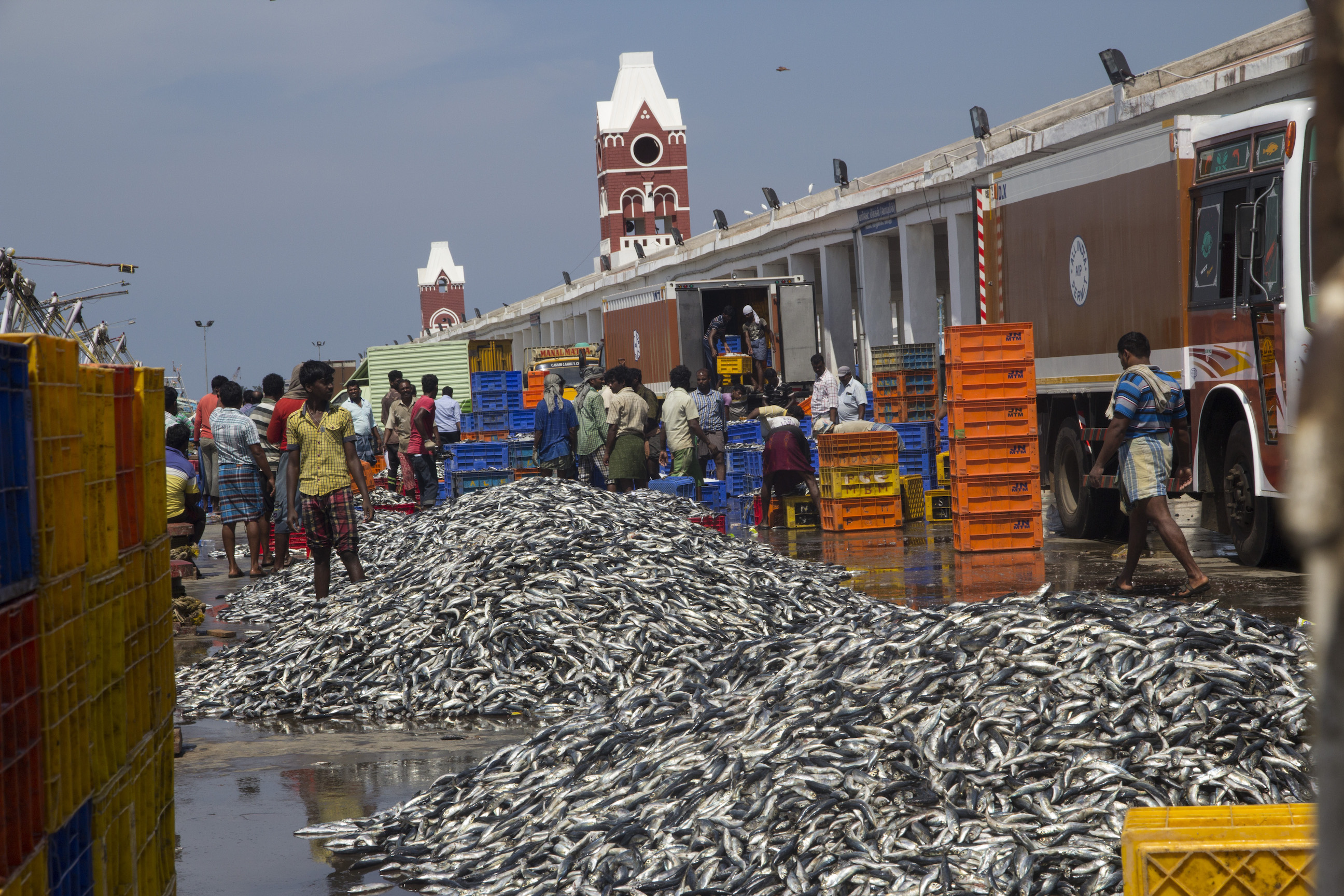
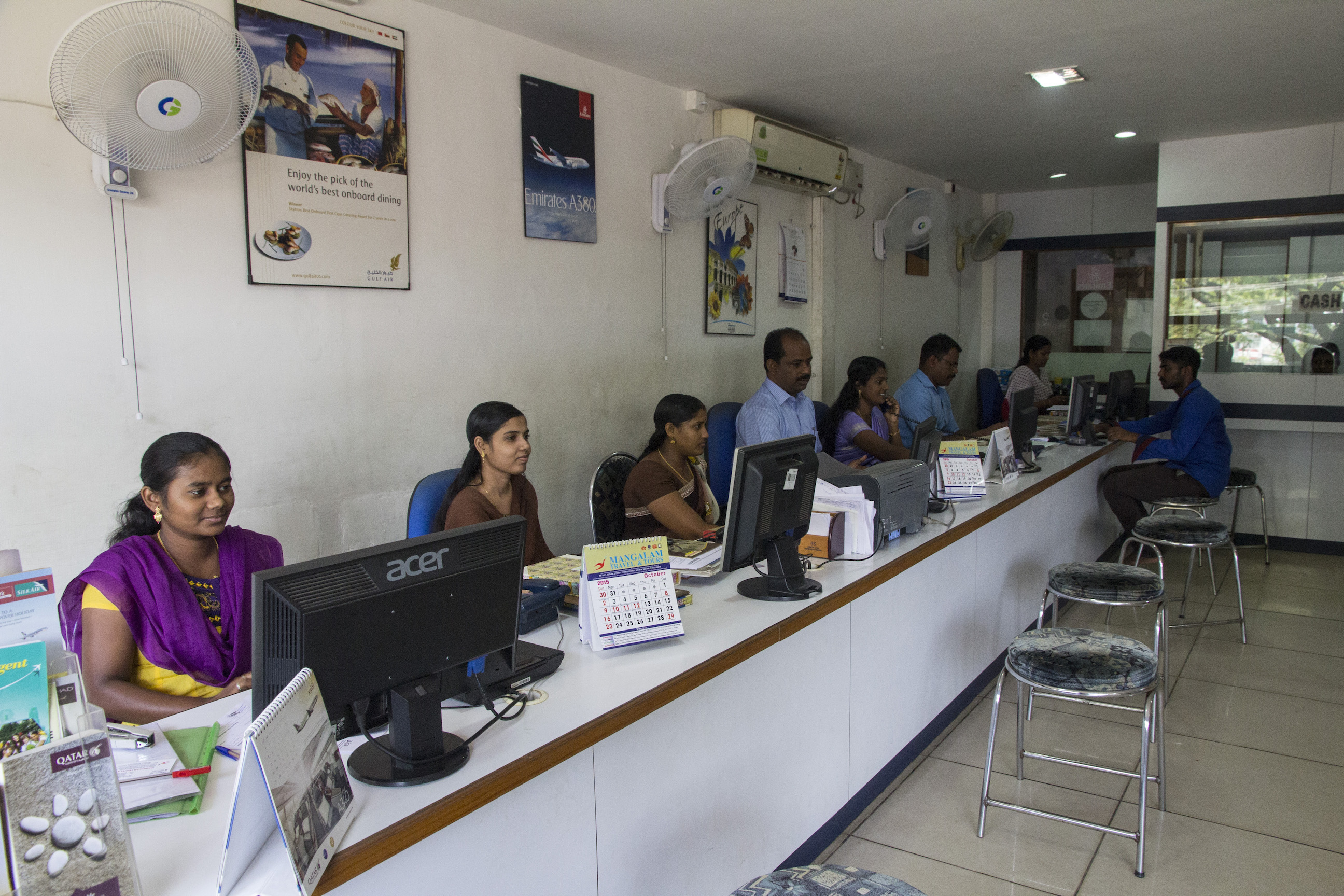
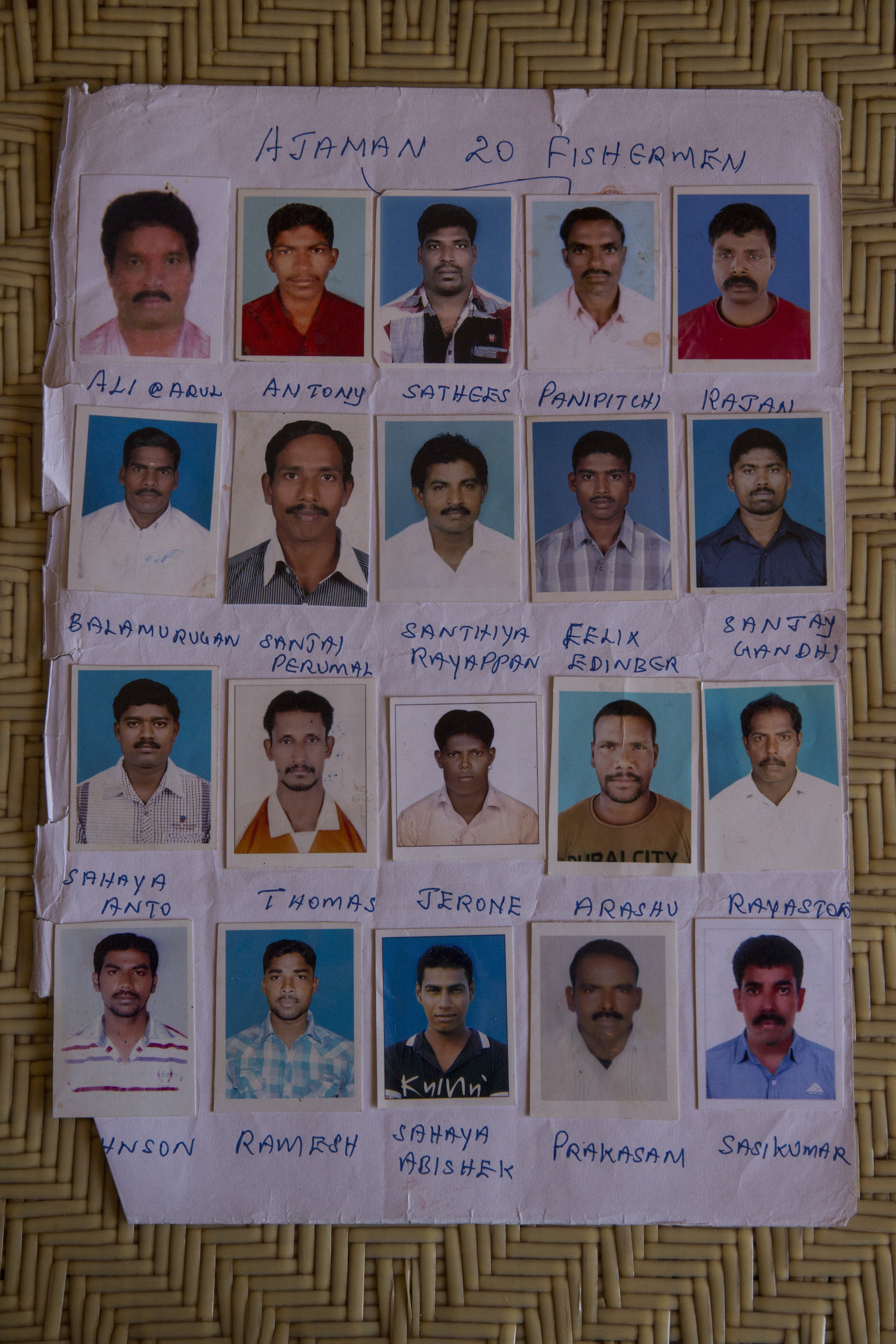
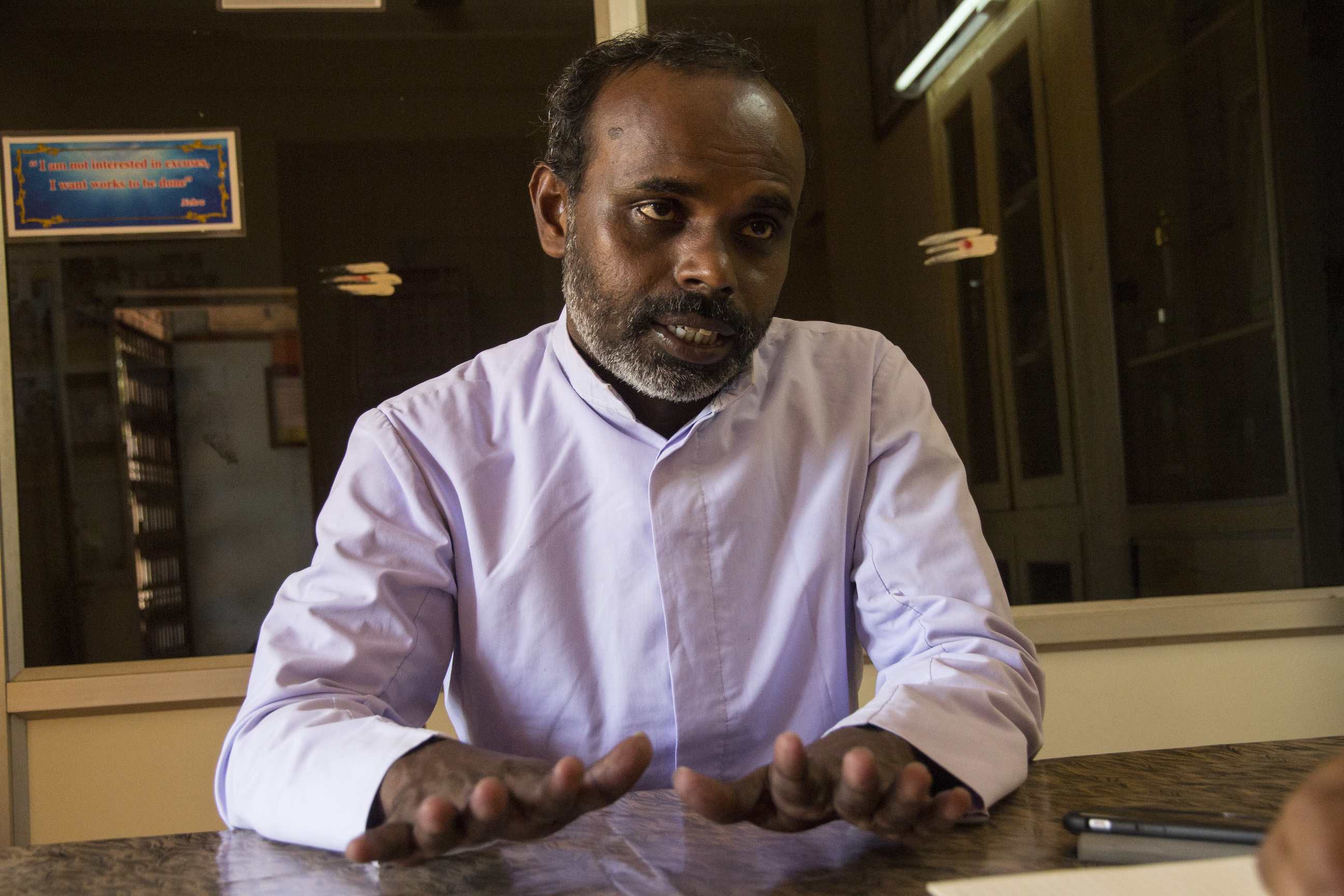



![Image relating to [Stories of Origin] High skills, low value: Indifferent Governments on both ends of migration](https://www.migrant-rights.org/wp-content/uploads/2016/08/harb2-1024x683-310x200.jpg)
![Image relating to [Stories of Origin] Life after arrests](https://www.migrant-rights.org/wp-content/uploads/2016/07/benj1-1024x683-1-1024x460.jpg)